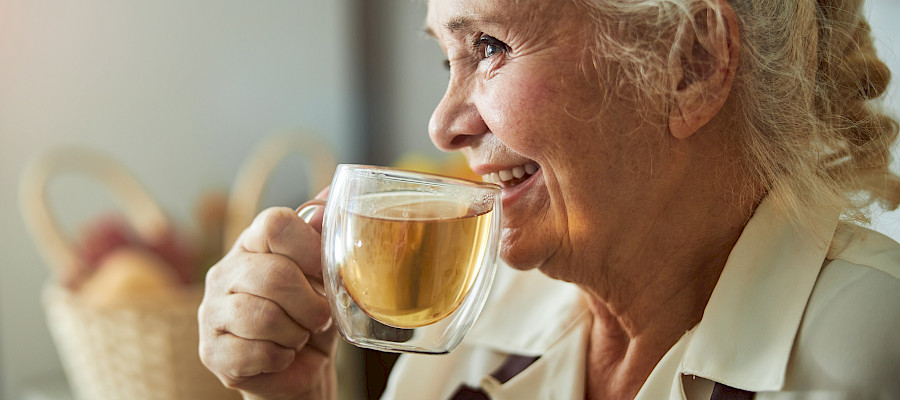- Find Home Care
-
East of England High-quality care across the East of England, empowering quality of life throughout your local area.
-
North West Exceptional-quality home care services that supports independence and quality of life across the North West.
-
South East Supporting individuals to remain happily at home, CareYourWay provides high-quality services across the South East.
-
South West Originally it's birthplace, CareYourWay continues to provide outstanding-quality care across the South West.
- Our Expertise
-
How our Care Works Tailored plans that fit your lifestyle and requirements
-
Our Commitment Everything we'll do to exceed your care expectations
-
Community Involvement How we work with and support the local community
-
Present for a Pensioner Christmas is an enchanting time of year. Present for a Pensioner provides luxury Christmas gifts to those isolated, and gives back to our incredible community.
-
- Home Care Services
-
Home Care Award-winning, high quality home visits that empowers independence and quality of life.
-
Overnight Care Specialist overnight care for individuals who may require assistance during the night.
-
Live-in Care Excellent live-in care that truly supports individuals to remain independent and happy at home.
-
Respite Care Expert, sensitive and bespoke support for families who are looking after their loved ones.
-
Dementia Care Expert, highly trained dementia care that empowers a stimulating, happy lifestyle at home.
-
Palliative Care Highly trained, sensitive and dignified palliative care alongside support for loved ones.
-
Personal Care Dignified and bespoke support with tasks that individuals may come to find strenuous.
-
Complex Care Specialist complex care tailored to an individual's specific needs, whilst supporting independence.
-
Companionship Whether a friendly face or a helping hand, supportive companionship care at home.
-
- Advice & Support
-
FAQ's Commonly asked questions about our service
-
Care Costs Understanding the costs involved for receiving care
-
Recognising the Need for Home Care How to know when you might need some extra support
-
Choosing the Right Care for You We offer advice to help you decide which form of care is best for you or your loved one
-
Nutrition Understanding nutrition and its importance to stay healthy
-
Loneliness Beating loneliness by staying connected with others
-
- Contact us
Find your Local
CareYourWay -
What Independence Really Means in Home Care and How to Support Your Loved Ones this Season.

As the days grow shorter and we settle into the gentler rhythm of autumn and winter, home becomes an even more comforting place. Being warm, comfortable and surrounded by familiar things is part of everyday wellbeing. For older adults, being able to continue living life in their own way still matters just as much as ever. Home care at its best supports that, without changing the life they love.
Independence in domiciliary care is not measured by how much someone can do alone. It is about the choices they still have and preserving the small details that make each day feel familiar. If they have always liked porridge at 7am, we help that continue. If they prefer to sit by the same window to read the afternoon paper, we create the space and comfort to make that possible. These small rituals matter. They anchor the day and help keep a sense of identity.
Independence begins with choice
Good care at home is not about doing everything for someone. It is about enabling them to remain part of their day. These simple routines form the foundation of independence, especially as the seasons shift and more time is spent indoors.
Families often tell us it is the ordinary, familiar moments that bring the most comfort. Choosing which jumper to wear or deciding what to have for lunch may seem small, but these decisions support confidence. When support at home is delivered with patience and respect, independence is not lost; it is strengthened.
Encouraging involvement, not replacing it
Good domiciliary care is also about gentle encouragement. A carer might stand beside them while they stir their own tea or break up tasks into manageable steps so the day feels theirs. This approach does more than support independence — it supports identity. Even in winter, when mobility may feel slower or energy lower, continuing to take part in everyday life keeps purpose alive. That sense of “I can still do this” matters deeply, especially when supported with a friendly hand nearby.
Companionship supports emotional independence
Shorter days can make the world outside the window feel quieter. This is when companionship care can make a real difference. Having someone friendly to talk to, reminisce with, or simply enjoy a warm drink beside brings comfort and connection. Emotional independence — feeling heard, involved and valued — is just as important as physical independence. A carer who knows your loved one well will sense when conversation is helpful and when quiet companionship is enough.
Safety that respects choice
In the colder months, safety can be a greater concern, but it does not need to take away choice. Thoughtful home care includes supporting mobility, keeping walkways clear, and ensuring rooms are well-lit as evenings draw in; helping someone continue living the way they wish, with reassurance and support close by. Independence is often best preserved when help is present quietly in the background.
Protecting what matters most
At CareYourWay, we believe independence is personal and unique to each individual. Some people enjoy company and support for outings or hobbies, while others value the reassurance of a friendly face dropping in to help with personal care, meals or small daily tasks. Whether it is personal care at home or support to stay independent at home, our focus is always on what matters most to them.
Thoughtful, gentle home care can help your loved one continue to live life in the comfort of home in a way that feels familiar, supported and truly respected. They remain in control of their day, able to thrive at home with kindness and care around them.
If you would like to find out more about how we can help, please give our friendly team a call or get in touch.
This article was last updated on November 4th 2025 by CareYourWay

Speak to a Member of the Team
If you're looking into care for yourself or a loved one, we're here to help any time you need us:

- 01548 521789
- enquiries@careyourway.co.uk
Registered Office:
Care Your Way
Little Spires
Totnes
Devon
TQ9 7QE
National Office
Main Links
Our Care Services
Work with UsWe're hiring!

- Home
- Find Home Care
- Our Expertise
- Home Care Services
-
Home Care Award-winning, high quality home visits that empowers independence and quality of life.
-
Overnight Care Specialist overnight care for individuals who may require assistance during the night.
-
Live-in Care Excellent live-in care that truly supports individuals to remain independent and happy at home.
-
Respite Care
-
Dementia Care
-
Palliative Care
-
Personal Care
-
Complex Care
-
Companionship
-
- Advice & Support
- Contact us
